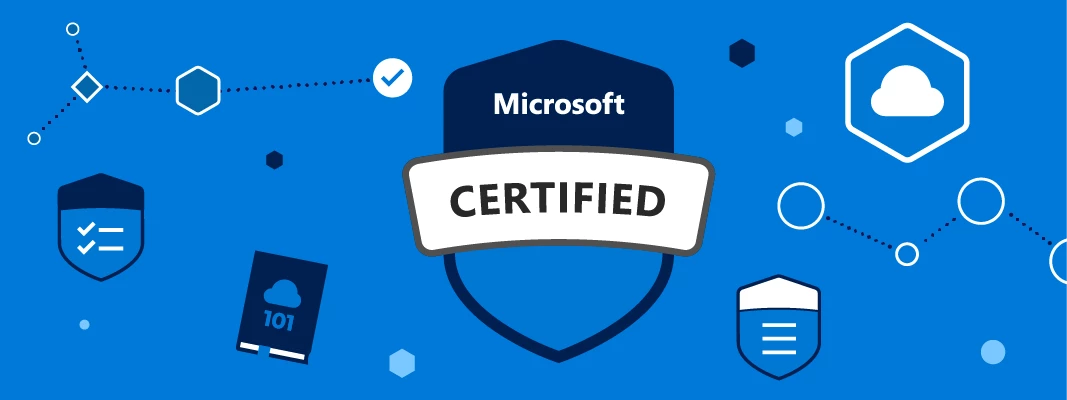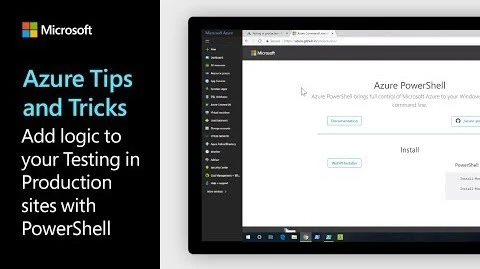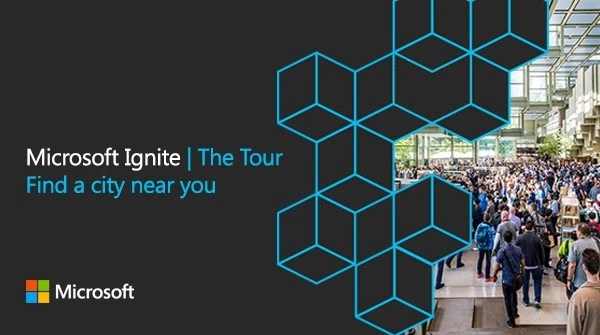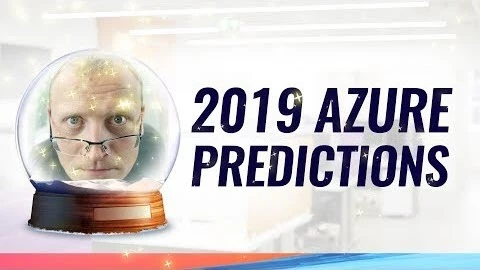Azure Migrate, Migration
By Rob Caron Sr. Product Marketing Manager, Microsoft Azure
Posted on
6 min read
The Azure Migrate service assesses on-premises workloads for migration to Azure. The service assesses the migration suitability of on-premises machines, performs performance-based sizing, and provides cost estimations for running on-premises machines in Azure. If you're contemplating lift-and-shift migrations, or are in the early assessment stages of migration, this service is for you. Azure Migrate now supports Azure Government as a migration project location. This means that you can store your discovered metadata in an Azure Government region (US Gov Virginia). In addition to Azure Government, Azure Migrate supports storing the metadata in United States and Europe geographies. Support for other Azure geographies is planned for the future.
Last month, built-in Python images for Azure App Service on Linux became available in public preview for Python 3.7 and 3.6. Python 2.7 is now available in the public preview of Python on Azure App Service (Linux). When you use the official images for Python on App Service on Linux, the platform automatically installs the dependencies specified in the requirements.txt file.
If you’re interested in building with Python on Azure, be sure to check out the four-part Python on Azure series with Nina Zakharenko and Carlton Gibson to get an introduction to building and running Django apps with Visual Studio Code and Azure Web Apps, setting up CI/CD pipelines with Azure Pipelines, and running serverless Django apps with Azure Functions.
Microsoft Azure Developers design, build, test, and maintain cloud solutions, such as applications and services, partnering with cloud solution architects, cloud DBAs, cloud administrators, and clients to implement these solutions. Based on feedback received about the Azure Developer Associate certification beta exams, AZ-200: Microsoft Azure Developer Core Solutions and AZ-201: Microsoft Azure Developer Advanced Solutions, the decision was taken to simplify the path and transition to a single exam, AZ-203: Developing Solutions for Microsoft Azure. By the way, Exam AZ-900: Microsoft Azure Fundamentals is as an optional first step in learning about cloud services and how those concepts are exemplified by Microsoft Azure. You can take AZ-900 as a precursor to AZ-203, but it is not a pre-requisite for it.
This introductory level post covers data storage options in a platform-agnostic way, with a focus on Azure Storage examples, to help developers understand that traditional NoSQL and SQL databases aren't the only option. Jeremy Likness shares when and why cloud storage is better option, definitions for various storage terms and concepts, simple ways to get started, and resources to learn more.
Curious about deploying Windows apps to Kubernetes? Would you like to use Draft and Helm, just as you would if you were deploying Linux apps or containers? Check out this blog post from Jessica Deen, which includes her session from KubeCon 2018.
Building on her “Apache Spark Deep Dive” exploration, Adi Polak shares her top five tips for improving Spark performance and writing better queries — from why you should avoid custom user defined functions to understanding and optimizing your cloud configuration. In her next post, she’ll dive into how to use Apache Spark on Azure, including real life use cases.
AI and ML are theoretically as easy as consuming a few APIs, but how do you apply them to real business scenarios? In this series, you’ll walk through how major Central Eastern European candy company uses computer vision, AI, and ML to solve a problem: automatically validating store shelves are properly stocked, eliminating costly audits and manual processes. By the end of the series, you’ll understand how to compare and contrast different Machine Learning approaches and technologies, understand available services and tools, and build, train, and deploy your own custom models to the cloud and remote clusters.
In addition to the usual updates, Cale, Russell and Sujit break down the Azure Sphere offering from Microsoft and what it means for the future of IoT development.
What is it like to intern at Microsoft? Scott Hanselman meets with three interns from the Microsoft Explorer Program (a cross-discipline internship designed for college freshmen and sophomores) to talk about their experience working on the Azure Container Registry and their contribution of ACR Build and Task capabilities to the Visual Studio Code Docker Extension.
Visual Azure Provisioning From a Whiteboard | The Xamarin Show
On this week's Xamarin Show, James is joined by good friend Christos Matskas who shows off a beautiful Xamarin application that is infused with AI to generate a full Azure backend just by drawing pictures on a white board. You don't want to miss this mind blowing demo and walkthrough of the code.
How the Azure DevOps teams plan with Aaron Bjork | DevOps Interviews
In this interview, Donovan Brown interviews Group Program Manager Aaron Bjork about Agile Planning.
IPFS in Azure | Block Talk
This episode will introduce the use of IPFS (Interplanatory File System) in a consortium setting. The concepts of how this technology can be helpful to remove centralization of storage that is not part of the block in the blockchain is shown. Along with this is a short demonstration of how the marketplace offering for IPFS in Azure can make creating these storage networks simple is shown.
Live demo of BeSense, an application built by Winvision on Azure Digital Twins | Internet of Things Show
Winvision has leveraged the spatial intelligence capabilities of Azure Digital Twins to build BeSense, a smart building application that provides real-time data that optimizes space utilization and occupant experience. Remco Ploeg, a Solution Architect at Winvision demos the application.
How to add logic to your Testing in Production sites with PowerShell | Azure Tips and Tricks
Learn how to add additional logic by using PowerShell to automatically distribute the load between your production and deployment slot sites with the Testing in Production feature.
In this episode, Jeffrey Palermo is joined by his guest, Gopinath Chigakkagari. Gopinath hits on some fascinating points and topics about Azure Pipelines, including (but not limited to): what listeners should be looking forward to, some highlights of the new optimizations on the platform, key Azure-specific offerings, as well as his recommendations on what listeners should follow up on for more information!
Learn new ways to code, optimize your cloud infrastructure, and modernize your organization with deep technical training. Join us at the place where developers and tech professionals continue learning alongside experts. Explore the latest developer tools and cloud technologies and learn how to put your skills to work in new areas. Connect with our community to gain practical insights and best practices on the future of cloud development, data, IT, and business intelligence. Find a city near you and register today.
Wednesday, January 16 – 1:00-2:00 PM Central (UTC/GMT -6)
If there’s one takeaway from 2018, it’s that most organizations now run at least some production workloads in somebody else’s data center, especially Azure — and we're here to show you how to monitor those cloud resources with the tools you already have. Join us – Phoummala Schmitt (Microsoft Cloud Advocate), Thomas LaRock (Head Geek and 10-year Microsoft MVP). and Patrick Hubbard (Head Geek) for a special hybrid IT/Cloud operations episode. We'll have live chat and experts on hand, so come with you Azure operations questions.You'll learn how to break down remote monitoring barriers, get a telemetry plan in place before migrating your apps, manage cloud costs, throttle dev sprawl. We'll also cover the new Azure and Office 365 Server & Application Monitor (SAM) templates and account activation.
Wednesday, January 23 – 8:00-11:00 AM Pacific (UTC/GMT -8)
In this O'Reilly three-hour live training course, Francesca Lazzeri walks you through the core steps for building, training, and deploying your time series forecasting models. First, you’ll learn common time series forecast methods, like simple exponential smoothing and recurrent neural networks (RNN), then get hands-on experience, using machine learning components like Keras, TensorFlow, and other open source Python packages to apply models to a real-world scenario.
This time on Azure This Week, Lars talks about 2019 predictions for Azure, changes and new certificates for Azure, and a new version of the Bot Framework SDK.
Let us know what you think of Azure and what you would like to see in the future.
Provide feedback
Build your cloud computing and Azure skills with free courses by Microsoft Learn.
Explore Azure learning
Azure App Service, Azure DevOps, Azure Functions, Azure Migrate, Azure Synapse Analytics, Compute, Containers, Management and Governance, Migration
AI + Machine Learning, Announcements, Azure AI, Azure Cosmos DB, Azure Kubernetes Service (AKS), Azure Migrate, Azure Web PubSub, Compute, Industry trends
Announcements, Azure Migrate, Azure VMware Solution, Compute
AI + Machine Learning, Announcements, Azure AI, Azure AI Studio, Azure Arc, Azure Carbon Optimization, Azure Database for PostgreSQL, Azure Integration Services, Azure Kubernetes Service (AKS), Azure Migrate, Azure OpenAI Service, Azure SQL Database, Customer stories, SQL Server on Azure Virtual Machines
Your email address will not be published.
